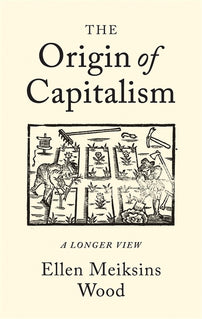Anthropology: Verso Student Reading
Our Anthropology reading for the academic year ahead.

From Ed Morales' exploration of Latinx political identities to Lizzie O'Shea's look at how radical history can change our interaction with technology to Benedict Anderson's essential text on global nationalism, look no further for your anthropology fix.
All our books are up to 40% off until the end of September as part of our Student Reading Sale. See all our recommended student reading here.
Student reading sale: ends September 30
30% off if you buy 3 or more titles
40% off if you buy 4 or more titles
Discount will be applied in cart. Separate orders can't be combined.
[book-strip index="1" style="buy"]






























